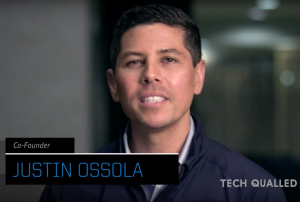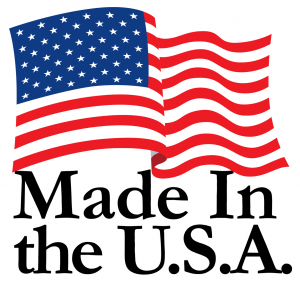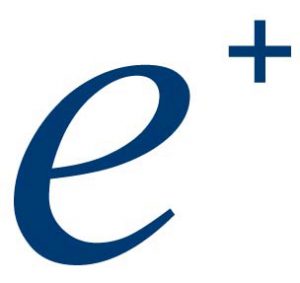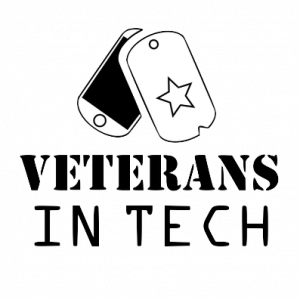BreakLine and investors help former service members transition into tech startups
After serving as a rear-detachment commander in the U.S. Army, Kymberly Penson wanted a job at one of the Silicon Valley tech startups
But the University of North Carolina business school graduate didn’t have a network on the West Coast, and explaining her military background to a tech recruiter was all new to her.
“I didn’t know everything from storytelling to personal branding,” she said. “I didn’t quite register how important that was.”
Ms. Penson was one of the first veterans to participate in BreakLine, an initiative founded by a former Stanford University administrator that aims to help veterans find work in tech companies. In July, Ms. Penson started her job as a customer success manager at Box.
BreakLine is one of several recent initiatives in Silicon Valley to retrain veterans leaving the military for roles in the technology industry. Conventional recruiting software and procedures often leave veterans out or fail to account for the years of work experience they have in the military. BreakLine, venture-backed company Shift and some investors are working to help startups and more established tech companies understand the value that veterans can bring to their workforces. This month, Betts Recruiting and Sandboxx will partner to help connect veterans with sales jobs at technology companies through an app and emails.
As tech companies strive to attract more diverse talent, some of their initiatives include recruiting veterans. Several companies include veteran statistics in the diversity reports that they release that also show the percentage of women and minorities the companies employ. However, Bethany Coates, BreakLine’s founder, says it is inconsistent across companies.
“When you work in the military, you don’t get to choose your boss or the team you work with, but you’ve got to get the job done,” she said. “They tend to be really effective and outcome-oriented.”
Stereotyping is often a barrier. Ms. Coates said some employers think veterans won’t be able to adapt to Silicon Valley’s culture or work well independently after working in the military’s regimented environment.
But Ms. Coates wants to highlight the skills veterans bring to the table. She said many recognize veterans have strong leadership skills and can work well as part of a team.
Don Dixon, managing director of Trident Capital Cybersecurity, learned of the myriad challenges that veterans face when watching his two sons, Andrew and Peter, trying to find jobs at technology companies after leaving the Marine Corps. He saw how difficult it was for them to navigate the job search—even with family connections and degrees from Princeton University and the University of North Carolina.
“It changed the lens of how I look at my past experiences,” he said. “It gave me the confidence that I can succeed in this field.”
 Don Dixon, Andrew’s father, said certain sectors in technology have been more receptive to veterans. He noted cybersecurity is an area where veterans can thrive because the companies’ missions are often aligned with national security interests, and there are more direct applications for military experience. Peter Dixon had a security clearance that proved helpful when he started his first technology job at cybersecurity startup ThreatMetrix.
Don Dixon, Andrew’s father, said certain sectors in technology have been more receptive to veterans. He noted cybersecurity is an area where veterans can thrive because the companies’ missions are often aligned with national security interests, and there are more direct applications for military experience. Peter Dixon had a security clearance that proved helpful when he started his first technology job at cybersecurity startup ThreatMetrix.
The Dixon family has recently launched Veterans Hire Veterans, an initiative that seeks to identify best practices for hiring veterans. They’re working with a range of companies, from the technology sector to more established companies like McKesson .
Another organization that is gaining traction in the industry is Shift, which is backed by the startup accelerator Expa. The company has talent advocates that try to translate military skills into experience that makes sense to private sector recruiters.
Shift Chief Executive Mike Slagh said veterans are especially challenged when moving into growth-stage startups that may be preparing for an initial public offering. He said because those companies have little margin of error for who they hire, they tend to recruit candidates who resemble other employee profiles and that may omit veterans.
“Paradoxically those are the companies where veterans can have the most impact,” Mr. Slagh said.
Mr. Slagh said growth-stage companies can allow veterans to use their leadership skills. He also said leadership changes rapidly at these companies, but veterans are used to getting assignments that frequently change.
Some veterans say they are seeing more buy-in by some executives. After serving in the Navy, Don Faul came to Silicon Valley to attend Stanford and wanted to break into the tech sector. When he joined Google in 2005, he knew only one other veteran there.
At Google, he was involved in starting the company’s first group for veterans and went on to develop similar initiatives in the early years of Facebook . After being hired as one of the first 50 employees at Pinterest, he helped the company consider recruiting veterans. Today he is chief executive of the wearables startup Athos.
“There are so many more veterans today in the technology industry,” Mr. Faul said. “The more people we have, the easier it is for a new crop of veterans to find a job.”
Correction: Stanford Ignite is a veterans program at Stanford Graduate School of Business. An earlier version incorrectly described Ignite as a predecessor of BreakLine. (April 10, 2017)
Article originally published in the WSJ. See full article here.
______
Cat Zakrzewski writes about technology for The Wall Street Journal and Dow Jones VentureWire in San Francisco. Her coverage areas include cybersecurity, artificial intelligence, consumer technology, and virtual reality. She is also interested in policy and regulatory decisions that affect startups.


 technology sales. My background, USCGA 88′, Duke MBA, and 12 years as an MBA admissions director, gives me some insights into helping you pick your best path if you are deciding between an MBA or Sales.
technology sales. My background, USCGA 88′, Duke MBA, and 12 years as an MBA admissions director, gives me some insights into helping you pick your best path if you are deciding between an MBA or Sales.
 Don Dixon, Andrew’s father, said certain sectors in technology have been more receptive to veterans. He noted cybersecurity is an area where veterans can thrive because the companies’ missions are often aligned with national security interests, and there are more direct applications for military experience. Peter Dixon had a security clearance that proved helpful when he started his first technology job at cybersecurity startup ThreatMetrix.
Don Dixon, Andrew’s father, said certain sectors in technology have been more receptive to veterans. He noted cybersecurity is an area where veterans can thrive because the companies’ missions are often aligned with national security interests, and there are more direct applications for military experience. Peter Dixon had a security clearance that proved helpful when he started his first technology job at cybersecurity startup ThreatMetrix.

 efficiencies and increase costs. Think about it — trust is critical to almost any relationship we have: in the office or at home, with our doctor or our elected officials. Naturally, certain relationships require more trust than others, however, the absence of trust is disabling. I’m sure most of us have experienced how difficult it can be to lose the trust of someone else. Decisions become fraught with suspicion, simple communication turns complicated and everything slows down. This made me wonder how trust plays a part for military veterans that are taking off the uniform and assimilating into civilian life.
efficiencies and increase costs. Think about it — trust is critical to almost any relationship we have: in the office or at home, with our doctor or our elected officials. Naturally, certain relationships require more trust than others, however, the absence of trust is disabling. I’m sure most of us have experienced how difficult it can be to lose the trust of someone else. Decisions become fraught with suspicion, simple communication turns complicated and everything slows down. This made me wonder how trust plays a part for military veterans that are taking off the uniform and assimilating into civilian life. question to answer, especially when the question is coming from a veteran and directed toward someone who isn’t. What surprised (and impressed) me most was the simplicity and confidence in his answer: “veterans do what they say they are going to do”. He followed up with a number of other qualities, but it was clear his primary message was that he felt veterans are very good at keeping their commitment.
question to answer, especially when the question is coming from a veteran and directed toward someone who isn’t. What surprised (and impressed) me most was the simplicity and confidence in his answer: “veterans do what they say they are going to do”. He followed up with a number of other qualities, but it was clear his primary message was that he felt veterans are very good at keeping their commitment.





 potentially all electric future. In response to this competition in the marketplace, companies such as Daimler, Chrysler, Ford, and Volkswagon are all building battery production facilities. The outcome is still unclear but will almost certainly rely on a highly trained and knowledgeable workforce. Unfortunately, without such technologies, some may question the employability of our transitioning veterans and how they will be able to bridge this knowledge gap.
potentially all electric future. In response to this competition in the marketplace, companies such as Daimler, Chrysler, Ford, and Volkswagon are all building battery production facilities. The outcome is still unclear but will almost certainly rely on a highly trained and knowledgeable workforce. Unfortunately, without such technologies, some may question the employability of our transitioning veterans and how they will be able to bridge this knowledge gap. curriculums for those interested in careers in virtual reality, artificial intelligence and self-driving vehicles; basically, the jobs of tomorrow. In contrast, Tech Qualled takes a slightly different approach by focusing solely on military veterans. They train selected veterans over a period of 8 weeks, both online and in-residency in Fort Worth, Texas. Tech Qualled also provides the benefits of placement at the conclusion of its formalized training program with a 95% placement rate.
curriculums for those interested in careers in virtual reality, artificial intelligence and self-driving vehicles; basically, the jobs of tomorrow. In contrast, Tech Qualled takes a slightly different approach by focusing solely on military veterans. They train selected veterans over a period of 8 weeks, both online and in-residency in Fort Worth, Texas. Tech Qualled also provides the benefits of placement at the conclusion of its formalized training program with a 95% placement rate.
 last 16 years at
last 16 years at